The Dumping Chute is burning in Darjeeling and there has been some amount of talk about it, not as much as I expected but also a bit more than the previous years.
The dumping chute is where we officially dump our waste in Darjeeling and the dumping chute burns around this time of the year when the weather goes sunny and air extremely dry. A quick scan of my old photos of the dump burning dates back to 18 December 2010 so it is safe to say that the chute has been burning off and on for at least the past 10 years. The implications of the chute burning, where our unsegregated waste is dumped are that the air we breathe in Darjeeling is toxic (and here we are telling others about the purity of our air in the Himalaya and genuinely believing it too). With the lay of the land, when the chute burns, the smoke travels up and spreads around the major part of the southwestern side of Darjeeling. This is where we have our major markets and residential areas in Darjeeling. This is instant karma of Kaliyug for the year-long dumping of our waste downhill contaminating water and soil of people living downstream. So why talk of air pollution elsewhere when the air we breathe in Darjeeling can be seen, smelt and is incredibly poisonous. Incidentally this year, in the evenings the smoke is drifting down the valley and also the fire has been smouldering through the night too which would not happen in the previous years. Methane is generated with the pressure that comes from the weight of the bio-degradable waste pile up, which then burst into flames. In these flames then burn all types of waste including plastics giving off toxic fumes of dioxins, furans and other gases that contribute to cancer, endocrine disruption, asthma, allergy to name a few.
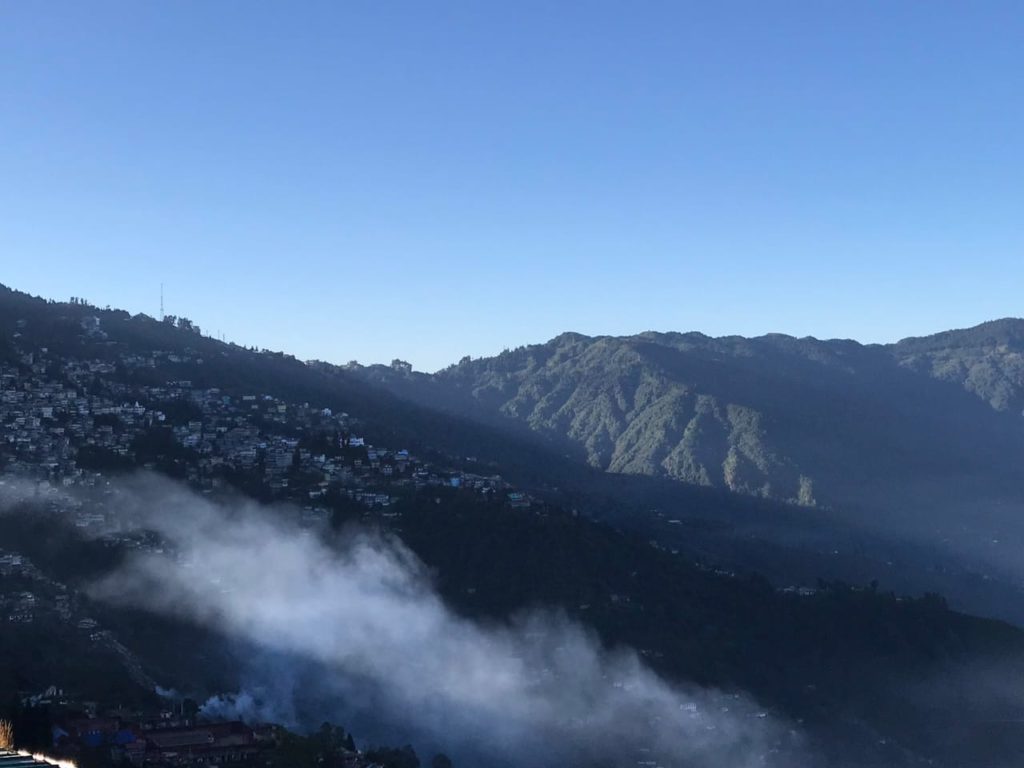
The smoke that is covering our major part of Darjeeling town is a manifestation of our short-sightedness and lack of willingness to address the issue of waste. Waste has dramatically increased in quantum as well as changed in type with increased consumerism and complex plastic packaging. It is also a reflection of how we view waste as every jhora or waterway is a dumping space; ask people who live downstream as to what happens to the stream when the monsoon breaks. This year Pandam Khola burst its seams with plastic and raw sewage destroying a bridge and cutting off Dabaipani and Yangkhoo from town for a week.
We still believe that rolling our waste downhill is managing it and likewise burning waste makes it magically go away. In these past years, There has been global recognition that waste does not go away, it remains on our planet polluting our soil, water and air making our living spaces hazardous, toxic and poisonous. What then is our future as a species when our own lifestyle is our undoing?
The smoke that covers the town is a wake-up call for all of us. A wake-up call to dramatically change our relationship with waste. We need to go beyond the dustbin, broom, rolling down the hill and burning narrative. We need to recognize that the many types of waste like multilayered plastic that we generate has no technological solutions so we have to reduce it and demand of the companies who produce and use it to take responsibility of their waste, take it back or find sustainable material to replace them. We also need to recognize that a large portion of what comes in multilayered plastic is junk food and drinks, high in sugar, salt and preservatives that are extremely harmful to our wellbeing.
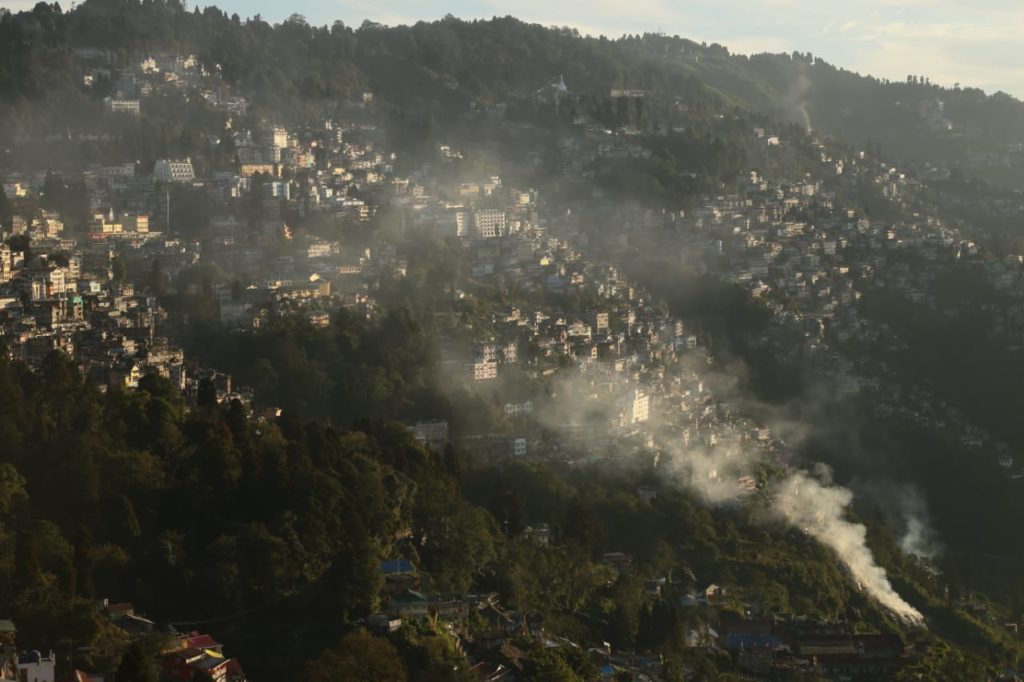
As a community of Darjeeling, we need to segregate at the source. Solid Waste Management Rules mandates segregation of waste at source. This is the only way where we can enable maximum material recovery and proper linkage to whatever limited recycling possibilities we have. We need to stop sending food waste to the landfill, period. Either link it to animal feed or compost at home or at the community level. 60 to 70% of waste will be managed at source if we compost. There are a plethora of composting possibilities available, what is needed is people and communities to take it up
Different sources of food and bio-degradable waste has to be addressed individually based on quantum and type, for example, hotels, restaurants, vegetable, fish and meat market waste have to be managed separately as well as levied in scale. The solid waste management rules also mandate that bulk generators take responsibility for their own waste.
While we have made a beginning with the door to door collection and removed the problem from our doorstep but the fire at the chute shows that the problem has just shifted and piled up. With the efficient door to door collection of waste, in garbage bags, we have ensured unsegregated waste pileup as never before. This pile-up was waiting for the right conditions to flare up and prove that it has not gone away. So segregation at source is the next step after door to door collection for us to manage our waste. Only with segregation at source can we efficiently compost and recycle.
There is always this challenge when we talk of reduction of multilayered plastic but what is really easy is to give up the plastic bag, plastic bottled water, plastic, styrofoam, thermocol cutlery. Imagine if everyone in Darjeeling gave up these plastic items. Imagine if every event: birth, marriage, death, meeting, marathon, seminar, religious programmes gave up these plastic items. And it is not difficult, these items came into Darjeeling in the last 10 years or so only and our lives were getting on fine without them too. This is the mindset change we need to bring in to manage our waste. Individuals, families, samaj, religious, political, educational, cultural organizations and institutions giving up these plastic items are what will make Darjeeling clean.
The essential shift in mindset begins with me saying I am responsible for my waste. The shift is to recognize the extreme limitations of the broom and the dustbin. The shift is to reduce my waste, segregate my waste and compost. We have to take the decision to stop using single-use plastics as an individual and community and take every step to reduce our waste to the landfill. Decentralised management is the only efficient way of managing waste as by the time it reaches the chute it has already become unmanageable.
We need a clear road map with incremental steps of reducing our load at the chute, composting at source and efficient linkage to recycling. We need to take bold steps with policies and bylaws and commit to stop single-use plastic. We need to demand of companies to stop polluting our town and take responsibility for their waste that has no solution. We need to start now so that these photos of the burning chute becomes history and Darjeeling truly becomes clean and truly Swachh.
Writes: Roshan P Rai. He works with DLR Prerna and is a member of Zero Waste Himalaya.

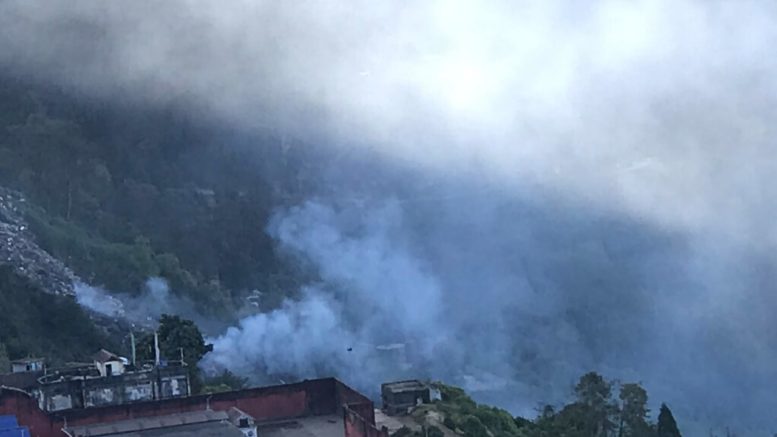

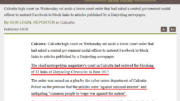

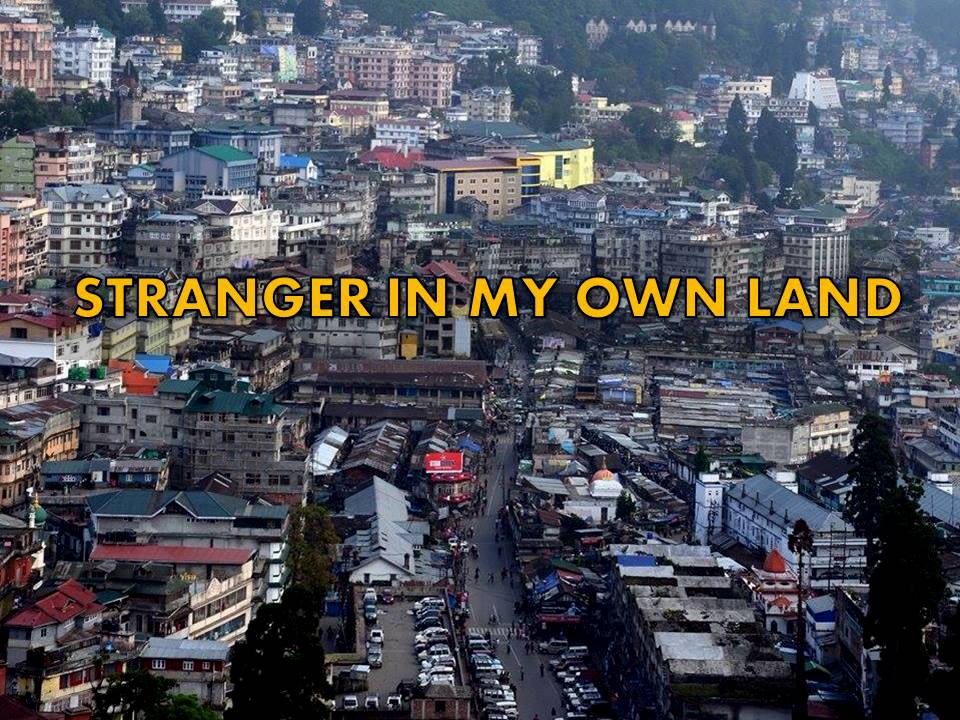
Leave a comment